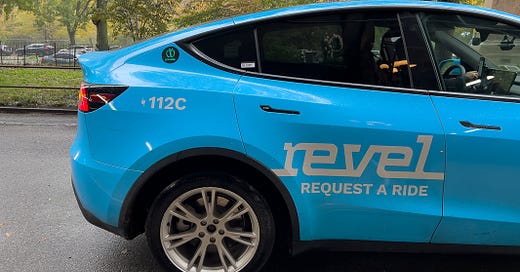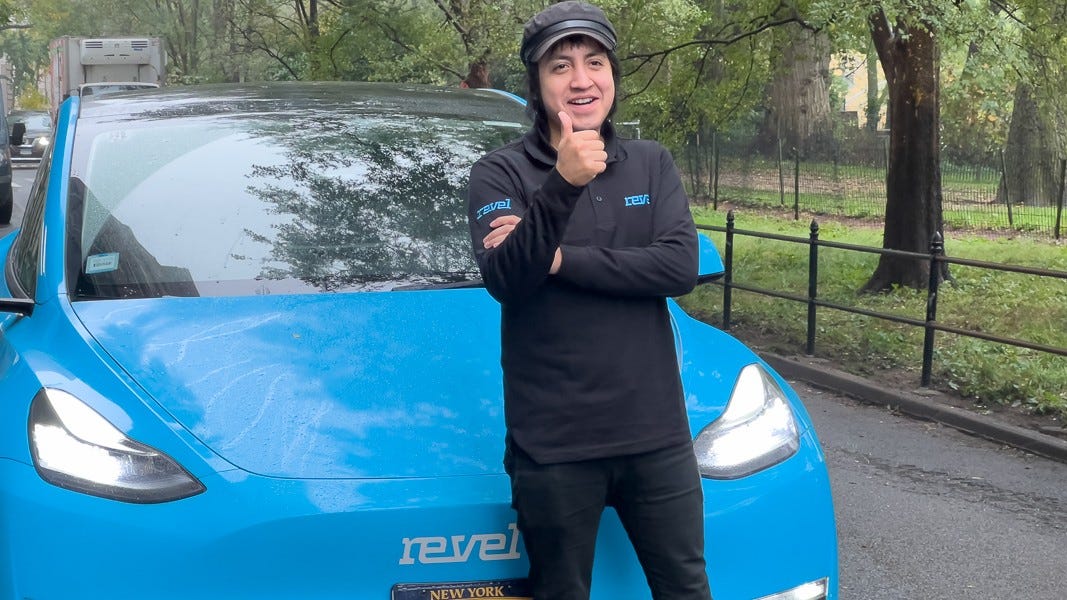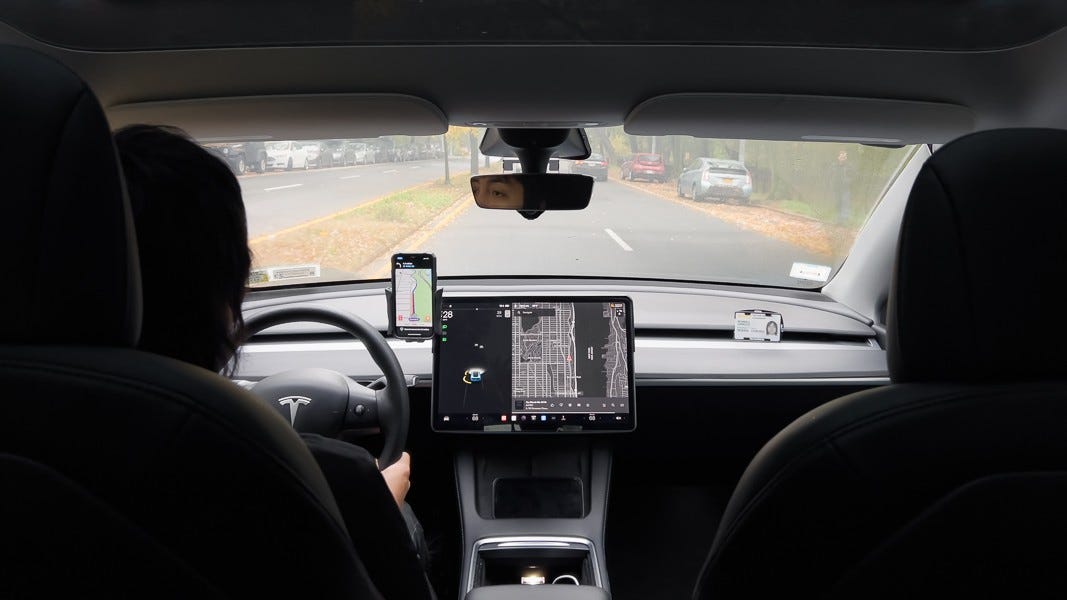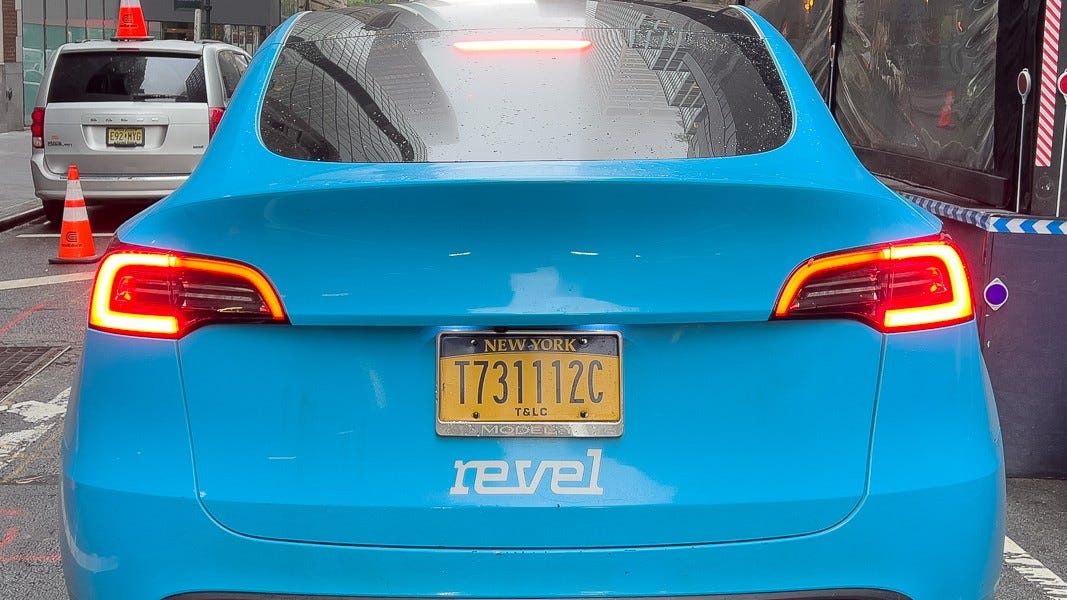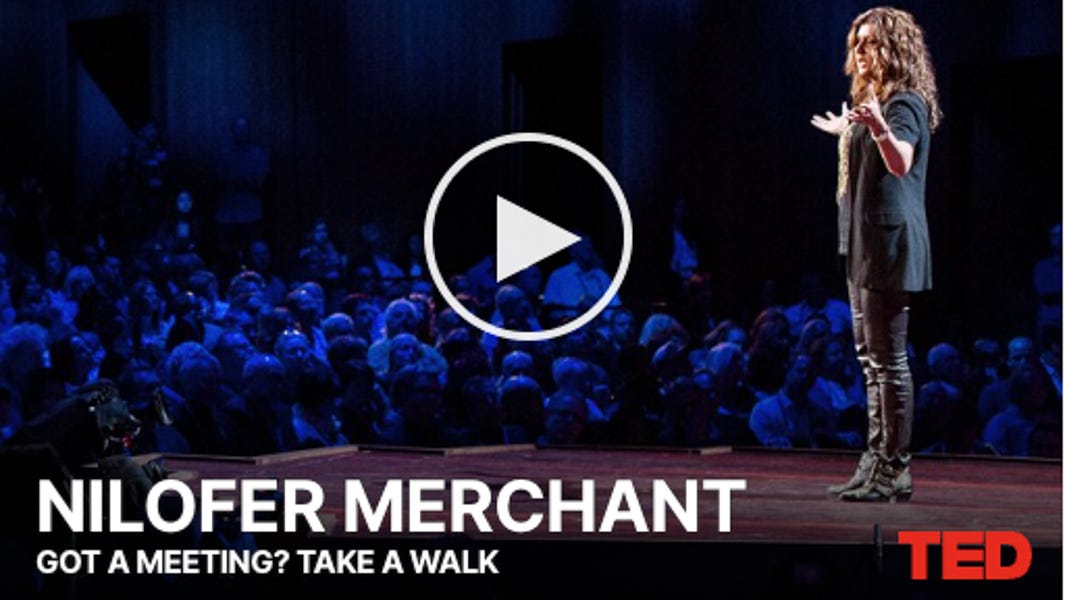Week 22.43 Relationship First
Relationship-first is a new concept I have been developing for business and life. It is an operating system for people and organizations that puts relationships ahead of transactions to create mutual growth and benefit instead of a zero-sum outcome. The idea of relationship-first is when an entity makes the relationship the goal, not simply the transaction. Relationship thinking applies to the individual first - you cannot have a good relationship with others until you have one with yourself. It applies to pairs of people who act in their communal best interest to accomplish a shared goal and to teams who work in a collective best interest to achieve their objective. And it applies to the planet, with whom we have a profound, life-sustaining relationship. Relationship-first can be a way of life and a way to run a business. Either way, it is the way forward for mutual growth and prosperity.
I'm always on the lookout for examples of relationship-first, especially in business so I was pleasantly surprised when a new car service, Revel, turned out to be that kind of company. Here in New York, I started using Revel scooters, the bright blue Vespa-style e-scooters that make moving around parts of the city cheap, fast, and easy, with the added benefit of being good for the environment. The company recently added a rideshare app-style car service with an exclusive fleet of bright blue Teslas. Since they moved to my area, they have been my first choice in rides because they are spacious, comfortable, and clean, and the drivers are delightful. During a ride over the weekend with a lovely driver Ricardo, I discovered that the company was not only electric; they are relationship-first.
The relationship-first experience starts with their drivers, who are full-time employees. Because they are employees instead of contractors, they are not in a hurry to start or complete a ride. They recognize that every interaction is part of the Revel brand experience, and they are trained to properly welcome you into the car, ask you about your day, and see if there is anything special you need. Their screening practice is excellent, as the drivers' quality and experience have been consistently first-rate. And they appear to treat their employees well. Another driver, Mark, mentioned that his mother had recently passed away, and the company insisted he takes a 5-day paid leave of absence to mourn his loss properly. Insisting people take time off is relationship-first.
The relationship-first experience extends to the customer as well. We all know that happy employees provide excellent service, so it is no surprise that getting into a Revel is a pleasure. The driver seems delighted to be there for me, always opens the doors or trunk, and is sure to ask about the temperature and my music preferences. My biggest surprise came from an insight Mark shared that immediately removed one of the most significant stressors from calling a car service. One of my biggest irritations with other car services is you have to be ready when the car arrives, or else the driver will leave within 3-4 mins, which creates an adversarial relationship between the driver and the rider. As Mark says, Revel is there for you, so after you order the car, it will not leave until you arrive. He said he would wait 15 mins. I hope I don't have to test that but just knowing they won't go without me is a game-changer. That’s a relationship-first customer experience.
Revel is now my favorite car service. I will wait extra time, pay the slight premium, and tell my friends about them. Their fleet of all-electric Teslas and scooters is good for the environment. Their willingness to employ their drivers and treat them well is good for people. And the policies that demonstrate they care about their customers make the service they provide an example of what is possible when relationships are the priority. The relationship-first approach of companies like Revel will demonstrate that a transactional mindset is not the key to growth. By recognizing and nurturing relationships in all interactions, companies like Revel are showing a new way, providing a service we want to use on repeat, and are proud to share. We can find and create relationship-first alternatives to transactions in life and leadership. They are all around us, and we make our world and the world a little better with each choice.
Got A Meeting? Take A Walk | Nilofer Merchant
What you're doing right now, at this very moment, is killing you. More than cars, the Internet, or even that little mobile device we keep talking about, the technology you're using the most almost every day is this, your tush. Nowadays, people are sitting 9.3 hours a day, which is more than we're sleeping at 7.7 hours. Sitting is so incredibly prevalent we don't even question how much we're doing it, and because everyone else is doing it, it doesn't even occur to us that it's not okay. In that way, sitting has become the smoking of our generation. A social interaction got me to make a change. Someone invited me to a meeting but couldn't manage to fit me in to a regular sort of conference room meeting and said, "I have to walk my dogs tomorrow. Could you come then?" Now, I've taken that idea and made it my own. I ask people to go on a walking meeting to the tune of 20 to 30 miles a week. It's changed my life. Several hundred of these walking meetings later, I've learned a few things. First, this amazing thing about actually getting out of the box leads to out-of-the-box thinking. Whether it's nature or the exercise itself, it certainly works And second, and probably the more reflective one, is just about how much each of us can hold problems in opposition when they're really not that way. And if we're going to solve problems and look at the world really differently, whether it's in governance or business or environmental issues, job creation, maybe we can think about how to reframe those problems as having both things be true. Because it was when that happened with this walk-and-talk idea that things became doable and sustainable and viable. Walk the talk. You'll be surprised at how fresh air drives fresh thinking, and in the way you do, you'll bring an entirely new set of ideas into your life.
How Resilience Breaks Us Out of Our Vulnerability Cage | Dr. Taryn Marie Stejskal
When we tell our resilience story, two powerful things happen: 1. We deepen our own resilience when we share our resilience story generously with others so they can learn the lessons of our experience vicariously. 2. We role model vulnerability, encouraging ourselves and others to not be held hostage by the fear of being vulnerable and instead, to step forward in vulnerability, breaking out of our vulnerability cages Dr. Taryn Marie is the #1 international expert on resilience, in both leadership and life, whose mission is to positively impact the lives of 1 Billion people, through the concepts of resilience, by 2030. She is recognized as a leading global authority on resilience, well-being, and mental health. Dr. Taryn Marie is the Founder and Chief Resilience Officer (CRO) of Resilience Leadership Institute (RLI) and believes that resilience is the key to individual and organizational actualization and acceleration across the globe. By leveraging over a decade and a half of original research on resilience, she developed the empirically based framework, The Five Practices of Particularly Resilient People. Prior to founding RLI, she served as the former Head of Executive Leadership Development & Talent Strategy at Nike, as well as Global Leadership Development at Cigna. Dr. Taryn Marie is a sought-after, trusted advisor for executives, athletes, leaders, musicians, and actors, and individuals from all industries who are looking for an edge by way of understanding and harnessing their inherent resilience.
Why doesn’t success bring happiness? | Laura Gassner Otting
Each time we achieve success, we also envision and hunger for a potential that we never knew existed. It’s amazing, it’s exciting, it’s energizing; it’s wonderful. But it’s also anxiety-provoking, identity-shaking, and exhausting; it’s hell. Based on a two decade career in executive search interviewing thousands of the most successful people in the world, Laura Gassner Otting explains why success doesn’t bring happiness, and how to take advantage of the “wonderhell” that it presents instead. Laura Gassner Otting has spent 25 years studying leaders and stewarding them through massive moments of career and life shift, whether as a political appointee in Bill Clinton’s White House, the founder and president of an international executive search firm, or in her current role as an author and keynote speaker. Her last book “Limitless: How to Ignore Everybody, Carve Your Own Path, and Live Your Best Life” was a Washington Post bestseller and was named by Robin Roberts as one of Good Morning America’s Favorite Books of the Year. She is a regular contributor to The TODAY Show, Good Morning America, and Harvard Business Review.
With love and wonder, and gratitude, Scott
By the way, many have asked about the photographs I use in these blog posts. Most of them are mine, with some exceptions of either location or specific people, usually from Unsplash. I enjoy sharing how I see the world as much as how I think about the world. Sometimes they are literal; other times, they are metaphorical, and occasionally it's just because they just catch my eye. I hope you enjoy the interplay of words and worlds and images.

